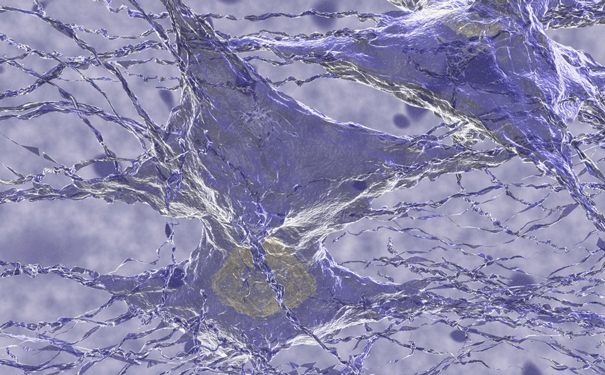
Tumours in the brain. Image: Shutterstock/MichaelTaylor
Scientists are using search engine algorithims to find cancer biomarkers.
Biomarkers can help detect cancers from body fluids or tissue. However, scientists have to spot the few relevant changes, among thousands, that are relevant for tumour aggressiveness, a difficult and time-consuming process.
Looking at single isolated proteins can often reveal false positives, as they may appear to indicate the desired biomarkers across a large group, but then fail to do so for individual patients. One way to improve on this is to look at the network of relationships between these proteins, according to Dresden University of Technology scientists Dr Christof Winter, lead author of the study published in PLoS Computational Biology.
“Cancer biomarkers often just capture what’s going on inside the cancer cells and that only to some extent. But there is so much more that affects the disease: immune system, diet, psyche, environmental factors, probably chance, and most likely things we don’t know yet.”
Winter and his colleagues have used a modified version of Google’s PageRank algorithim to rank approximately 20,000 proteins. This has been done manually, but the researchers wanted an automated and more objective way of integrating the network information.
“We first experimented with our own ideas on network algorithms until we realised that what we needed existed already with the PageRank algorithm, so why reinvent the wheel?”
Using the network of interactions between genes and proteins, they mapped the activity of 20,000 genes in tumour cells for 30 patients and calculated how well these corresponded with patient survival time. They then combined the survival calculations with the relationships between genes and proteins and ran this algorithim over the network.
“Instead of the PageRank that Google determines and that indicates how important a web page is, we got a NetRank value for each protein that allowed us to rank the proteins by their importance for disease progression,” Winter says.
The proteins are ranked according to their genetic relevance to the progression of pancreatic cancer. This ranking method will assist researchers in finding biomarkers for cancers.
It will also assist clinicians in determining how aggressive the patient’s cancer is and deciding whether the patient needs chemotherapy.
For more information about cancer biomarkers, check out the new issue of Science Illustrated, on sale now.






